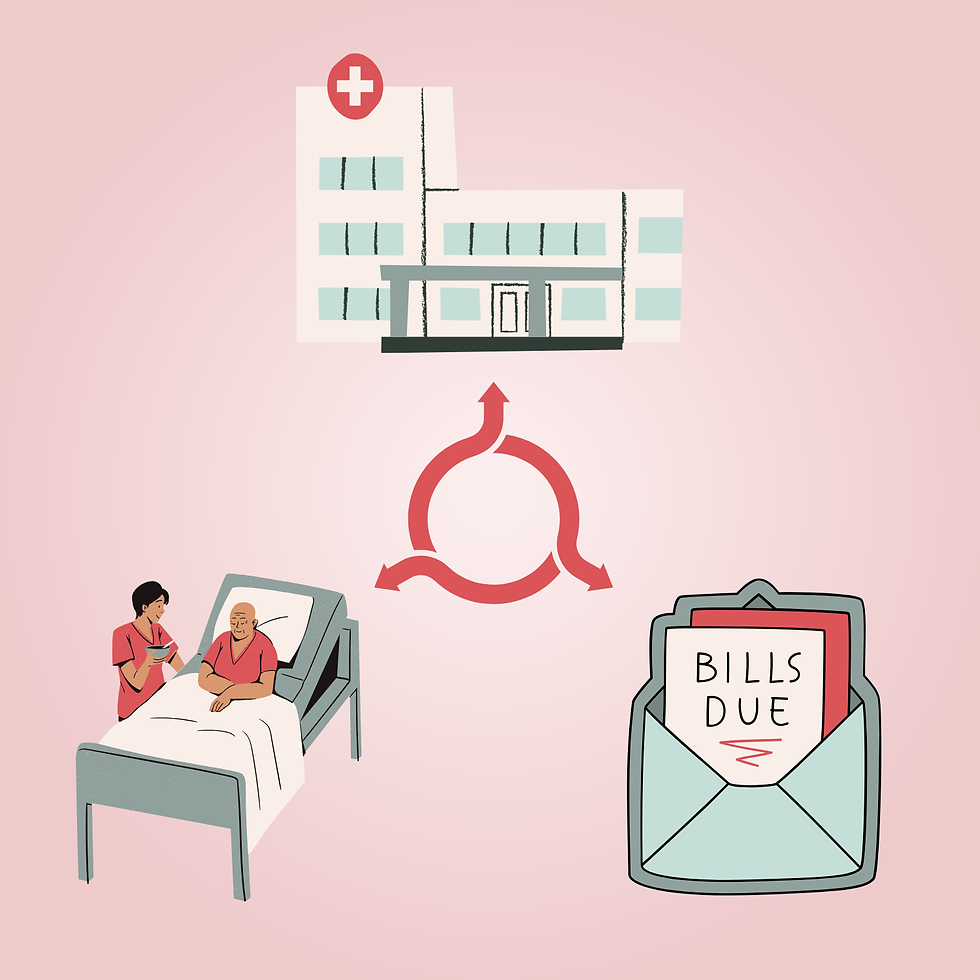Overcoming Barriers to Refugee Healthcare
- Camille Krejdovsky
- Dec 28, 2022
- 2 min read
It's no secret that the U.S. healthcare system is complicated to understand and navigate, even for those who have lived in this country their whole lives. For newcomers, understanding its functioning is often just one small part of a host of obstacles faced when accessing vital services. For refugees, defined by the UNHCR as "people who have fled war, violence, conflict or persecution," the United States may seem like a haven, with access to healthcare resources lacking in the refugee camps that many pass through. However, upon arrival to the U.S., there is a disjunction between the promise of some of the most advanced medical treatments in the world and the reality of how access plays out. Not only are there many cultural and language barriers, but there are also structural and political barriers at play that prevent refugees from being able to fulfill their healthcare needs.
A little-known fact about North Carolina is that it consistently ranks 10th on the list of states that take in the most refugees in the U.S. However, not all areas of the state are the same, and the resettlement experience can vary drastically from county to county, especially concerning access to quality healthcare. For example, Durham County is home to several refugee resettlement agencies and has its own Refugee Health Clinic that provides essential health-related services and referrals to further care. However, the situation could be more accommodating in other parts of the state and becomes especially problematic as refugees are settled outside places like Durham due to affordability issues. Structural and political matters begin to come into play, with competing demands on resettlement agencies to operate with limited government funds while situating refugees in communities that provide the best environment and the most services. Unfortunately, one of these demands has to lose, often at the expense of access to essential healthcare services.

While it is easy to zoom in on the issues faced in North Carolina, refugees' barriers to accessing healthcare are by no means limited to the state or even to the U.S. The World Health Organization frames the situation as a global one, in which "refugees and migrants remain among the most vulnerable members of society," facing "xenophobia; discrimination; substandard living, housing, and working conditions; and inadequate or restricted access to mainstream health services." While the problem is not specific to North Carolina, the state can -and has begun- to make progress toward solving this issue locally. For example, more and more counties have created immigrant/refugee health officer positions that help connect refugees to existing services. Yet, there is still more work to be done until every refugee can access quality healthcare in the county in which they reside.
Edited by: Caroline Palmer
Graphic Designed by: Alejandra Gonzalez-Acosta
References



Comments